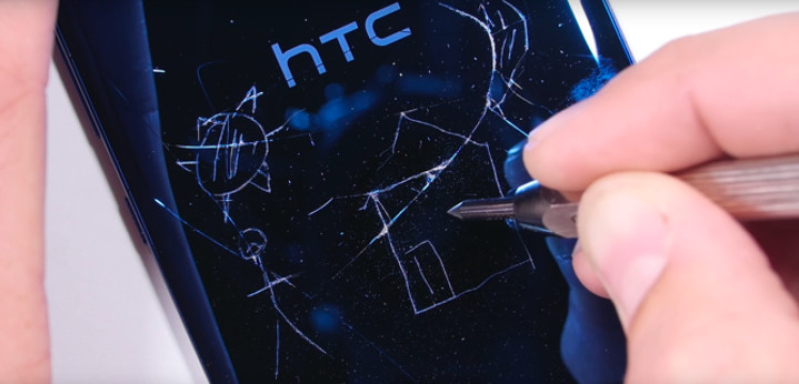
All smartphone companies would need a flagship that they can call their own -- it makes perfect sense for that to happen. After all, it is somewhat akin to Formula 1: many of the technologies in modern day cars are enhancements and advancements made on the race tracks. They might not be that practical at first, but over time, it would have been refined and made its way down for regular Joes and Janes to enjoy. So too, is the smartphone world to a certain degree. HTC did stamp its mark many years ago as a prima donna in the smartphone world, having the lion’s share of Android-powered devices with a few outings under the Windows Phone banner. Unfortunately, the company from Taiwan did seem to lose their direction along the way (and subsequently, market share slipped as well). The HTC U Ultra, which was HTC’s Spring Surprise, failed to raise too many eyebrows among the journalists who put it through the paces.
Sure, the HTC U Ultra is a looker by all accounts, but as we all know, deep down inside is what counts. You can have the best looking handset out there but if it lacks the relevant software or is simply so difficult and irritating to use, most people would avoid it like the plague. The HTC U Ultra is getting more brickbats than bouquets in reviews, and one of the major complaints is this: the display gets scratched all too easily.
JerryRigEverything’s latest video does move in such a direction, pointing out just what is wrong with the HTC U Ultra. Kicking things off with a scratch test, the HTC U Ultra gets scratched at level 6 on the Mohs scale. For those who love their handsets to be in a pristine condition all the time, it would be best you get a decent screen protector to go along with the HTC U Ultra. While the fingerprint sensor might also get roughed up pretty badly by scratches, it will still work. As for the front-facing camera, that bit comes covered with glass, although it is somewhat disappointing that the earpiece is a cloth unit.
The back glass and camera were far more tough, resisting scratches from a razor blade, although the bits that are covered by plastic: the flash and laser autofocus, would obviously be far less resistant to scratches. This means the autofocus module has the potential to end up useless over time when scratches start to accumulate.
Is there any particular reason to pick up HTC’s Spring Surprise? Not really, and hopefully HTC’s upcoming flagship, the HTC 11, will not disappoint further. Each new smartphone release from HTC that does not live up to the billing among other flagship devices will condemn HTC further down the scrap heap, and it might make life even more difficult to come up with a winner that everyone loves. At $750 a pop, the HTC U Ultra is not cheap at all, and you would most probably be better off with an iPhone 6 Plus or a Samsung Galaxy S7 edge at that price point.






